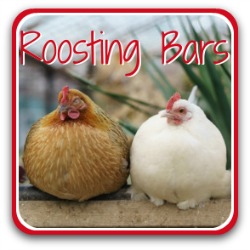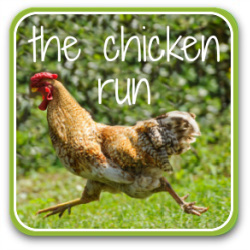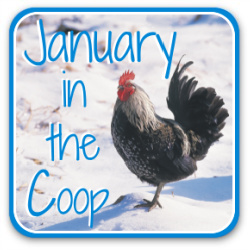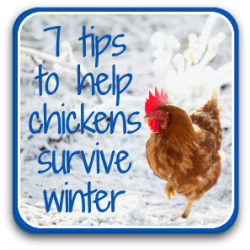- Home
- Coops
Chicken Coops: designing that perfect somewhere your flock can call home.
Chicken coops need certain features to keep your girls (and boys) healthy and happy. Here's how to create a coop which will meet all their needs.
Planning a chicken coop is exciting - whether it's your first, or the most recent in a long line.
But having a chicken house that works well isn't just a case of putting a roof over your flock's heads. And when you're first starting out with chickens, it's hard to know what to look for in a good coop.
We all like cute chicken coops. They're great to look at, and a source of pride and pleasure if you own one.
But there are certain practical considerations related to your flock's health and safety. These must be given attention if your cute coop is to satisfy your chickens' needs, as well as look good in your backyard.
This is a list of what's critical to keep your hens healthy, as well as protecting them from the elements and from predators.
Each section is important enough to deserve its own page. Click on the headlines or images to take a look at the different topics.
And whichever type of coop you finally decide on, use this page as a checklist to make sure all the essentials are met.
Chicken coop requirements.
Things your coop should definitely have.
Roosting bars
Roosting at dusk is a natural instinctive behaviour for chickens. Having a safe place to sleep keeps them from predators, helps prevent illness and deters pecking order problems.
On this page you'll discover the exact dimensions for roosting bars, what they should be made of and where they should be placed, at what age chickens should be introduced to roosting and why some roosts can damage your chickens' feet.
Everything you need to know about the perfect roost is here.
Nest box design: a complete guide
What should a nest box look like? What type of material works best for chickens? And which is best if you're on a limited budget?
This article follows six steps to make an assessment of which type of nest box will work for your particular situation.
From whether wood works better than metal and plastic to the features to look for and the differences between a traditional and "roll away" design, start here when deciding on which type of nest box is best suited to you.
Nest boxes: siting, size and bedding
One of the five welfare requirements for chickens is that they have enough space to lay their eggs in a secure, safe environment. If that's lacking, they're likely to lay in places well hidden from your sight.
In this article you'll find everything you need to know about how to make your nest boxes exactly what chickens need: where to place them, how big they should be, how many you need and what to use as bedding.
The pop door
The way in and out of the coop for your chickens might seem like a pretty simple aspect of chicken coop designs.
But what about automatic coop pop doors? Are they a boon for you, or a problem for your flock? Worth an investment, or a dangerous waste of time?
This article assesses the pros and cons of automatic coop doors, looks at features you should consider when buying one, and answers all the pop door questions you have asked.
Omlet's Eglu chicken coop design
Omlet create chicken coops which are particularly well suited to smaller spaces, including urban areas.
But how do they match up against the seven steps covered above?
This article reviews the way all their coops are designed: materials, insulation and ventilation, perches and nest boxes, mite and disease control, pop doors and security, how easy they are to clean, and whether their cost is mitigated by their durability.
Omlet's Eglu Cube chicken coop – reviewed
The general design of Omlet's coops might be excellent, but how does their Eglu Cube work in reality?
I review the Cube, based on my experience of owning one for over ten years. It's a no-holds-barred look at its size and design, its use as a chicken tractor, how to build it, pros and cons, where to buy it and my bottom-line "is it worth the money?" assessment.
Additions to your chicken coop.
Things which can make your coop that little bit special.
Light in the coop: yes or no?
Thinking about having electricity in your chicken coop? Most people run an electric cable to their coop so that they can have light in the coop during the winter months, to help their hens continue to lay eggs despite the season.
But is it really necessary? Does light harm chickens? Should hens be allowed some time off from laying eggs?
Take a look at the pros and cons of having light in the chicken coop before you make a decision.
Deep litter in the chicken coop
How do you keep your coop clean and at the same time warm? Answer: the deep litter method.
It's not as easy as you may have read, though. It takes careful management if it's to work properly.
This article uses evidence from studies to examine how, when and why to use - or not to use - it.
Using diatomaceous earth in the chicken coop
Diatomaceous earth (DE) causes major debate between backyard chicken keepers. Is it the best thing ever, or can it cause your flock untold health problems?
This article reviews the research and what it says about using DE both for your chickens directly, and in the coop itself.
You'll want to take particular note of the information about using it around roosting bars.
Using lavender in the coop
Whether mixed with bedding or sprinkled in nest boxes, lavender in the chicken coop can help give you relaxed laying hens, reduced aggression, bug control and a sweet-smelling run.
In this article we assess the evidence for lavender's effectiveness, try a recipe for using it as an antiseptic and a fly repellent, and examine the different uses for lavender buds and oil.
Read all you need to know about using lavender in the chicken coop.
Outside the coop: the chicken run.
Your chickens won't be staying inside the coop all the time. Happy, healthy chickens need to forage outside, so all coops need a run.
But how much space should a chicken have in the run? What should the ground be like? How can you keep it from becoming a mud bath in winter and an oven in summer? And what's the best way to protect it from predators?
Everything you need to know about chicken runs is contained in this article.
Omlet's chicken runs reviewed
Omlet has a range of runs which are well designed, built to last, customisable and as predator-proof as a run can get.
This article reviews Omlet's small, larger, tractor style and walk-in runs and assesses which is best for different situations and spaces.
From small spaces to large pieces of land, there's bound to be one here that suits your needs!
Dust baths
It's an undisputed fact that chickens need dust baths for their health and well being. Numerous studies have been carried out with virtually the same conclusions.
This article uses those research findings to cover why it's necessary, what makes a good dust bath container, the merits of using different materials as a dust bath filling and what happens if chickens are deprived of the ability to dust bathe.
Your chickens need this. Plan for your dust baths, now.
Coop decor at Christmas!
So your coop is the best it can be: watertight, draught-proof, with plenty of space for roosting, laying and socialising.
Now it's Christmas, and time to have some festive fun!
Here are ten DIY ideas for adding some holiday cheer to the inside and outside of your coop.
- Home
- Coops



















